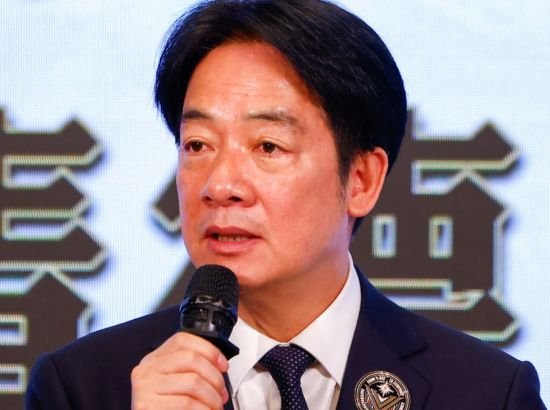
Taiwan president warns democracy threat during a historic WWII commemoration, drawing stark parallels with Europe before World War II.
In a powerful address on Thursday, Taiwanese President Lai Ching-te led the island’s first official commemoration of the end of the Second World War. Speaking to foreign dignitaries in Taipei, Lai drew comparisons between Taiwan’s current position and Europe’s vulnerability in the 1930s.
“Eighty years later, the lesson of history is clear,” Lai said. “We now share the same values and face similar challenges as the democracies that stood against fascism.”
The president warned that authoritarian threats are once again growing. Without directly naming China, Lai urged “freedom-loving people and countries” to come together.
“Taiwan and Europe are jointly facing the threat of a new totalitarian group,” he said. “History tells us that appeasement only emboldens aggressors and fuels expansionist ambitions.”
The event began with a short video featuring the Normandy landings and audio clips from Winston Churchill’s famous speeches. UK representative Ruth Bradley-Jones and EU envoy Lutz Güllner delivered remarks, reinforcing Europe’s symbolic presence.
The speech comes at a time of growing geopolitical strain. China has long claimed Taiwan as its territory and has threatened reunification by force if necessary. Since Donald Trump resumed office in January, doubts have emerged over U.S. willingness to defend Taiwan.
Beijing frequently stages military drills near Taiwan. At the same time, it escalates “greyzone” tactics—like disinformation campaigns—to destabilize the island.
Wen-Ti Sung, a fellow at the Atlantic Council, said Lai’s message was clear: Taiwan seeks to be an equal partner in global security, not just a passive recipient of support.
A day earlier, Chinese President Xi Jinping arrived in Moscow for Russia’s Victory Day events. During the trip, he reiterated China’s claim on Taiwan and thanked Russia for backing China’s reunification goals.
Writing in Russian media, Xi referred to the occasion as “the 80th anniversary of Taiwan’s recovery” and stressed that unification with the mainland is “unstoppable.”
“No matter how external forces interfere, the trend of reunification is unstoppable,” he wrote.
Analysts believe Lai’s speech was designed to connect Taiwan’s security to the broader democratic world. Marcin Jerzewski, head of the European Values Center in Taiwan, said the president aimed to show that Taiwan’s fate is tied to Europe’s—especially as American influence fluctuates.
With China’s growing alliance with Russia and increasing tension in the Indo-Pacific, Taiwan is pressing for stronger international alliances. It’s positioning itself not only as a strategic partner but as a front-line democracy worth defending.